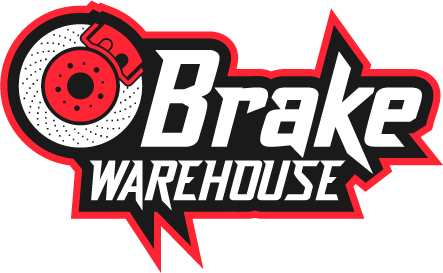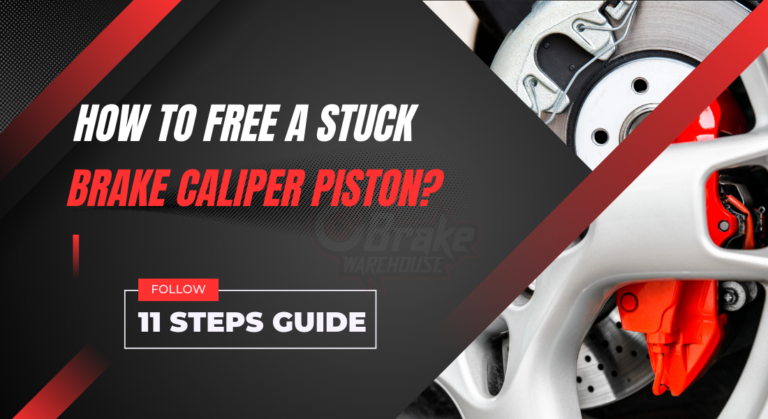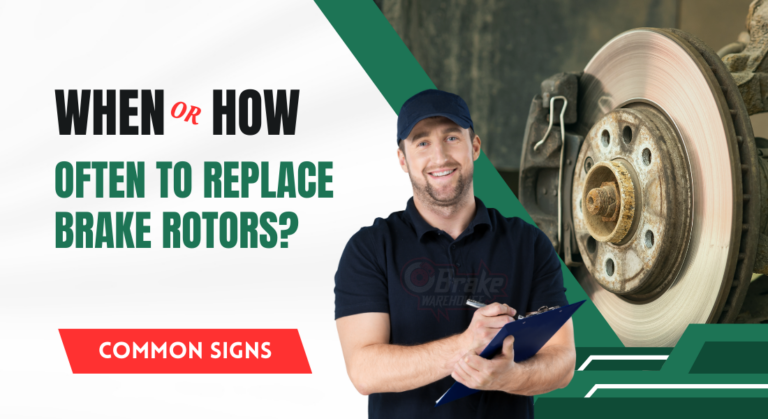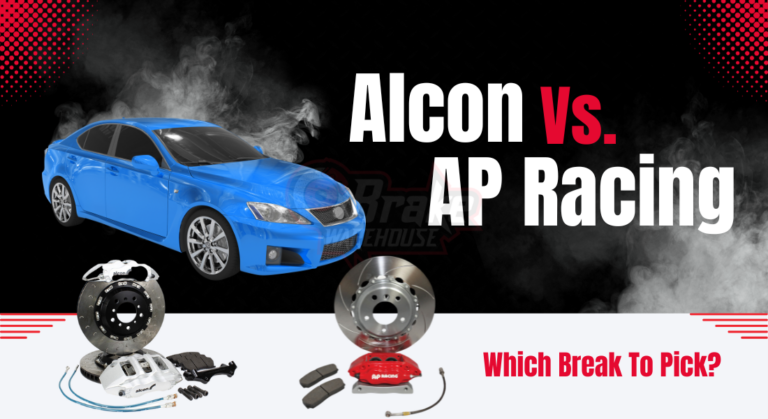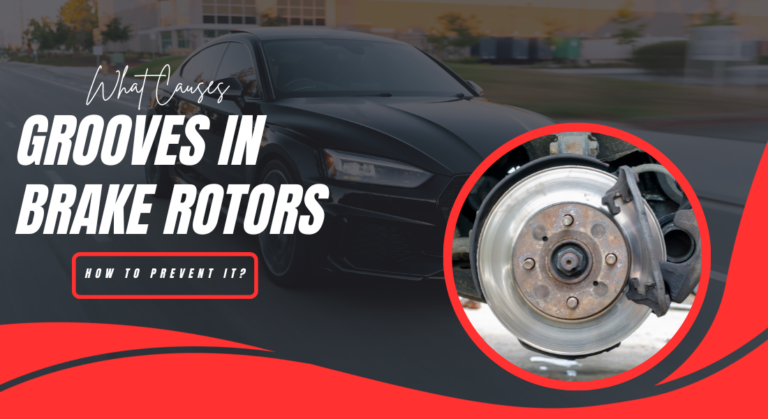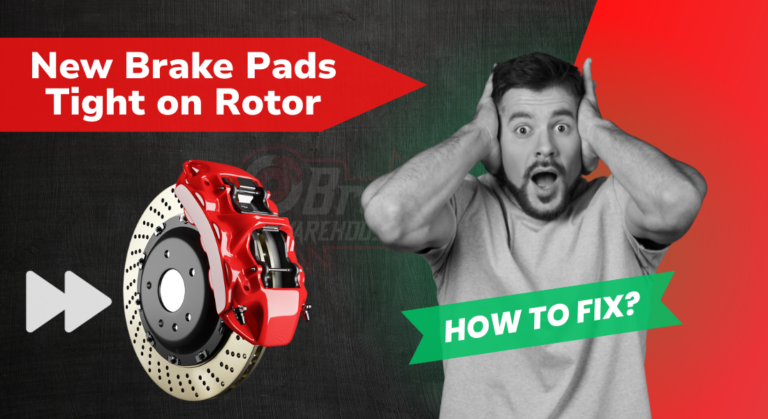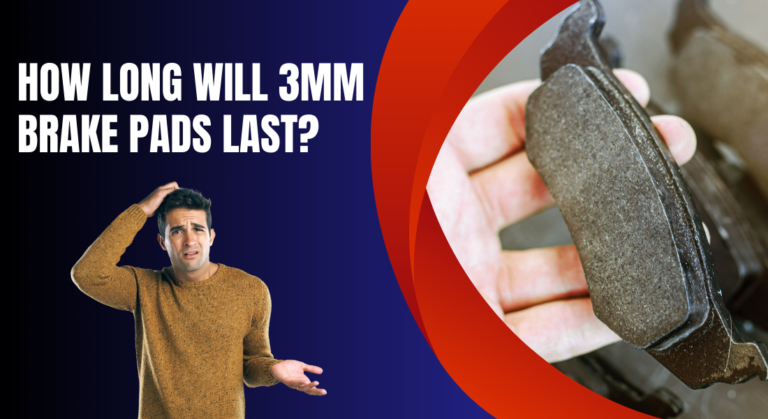Why Disc Brakes Getting Hot on One Side? 8 Reasons To Check
Regular maintenance of the disc brakes is crucial. Every car owner must learn some signs telling them that the brakes are bad. Such a sign is heated disc brakes on one side.
Possible reasons for this occurrence involve improper caliper placement or misalignment. It increases friction and leads to one side of the disc brakes overheating. Faulty flex lines, warped rotors, and damaged brake pads are other culprits.
This article aims to provide comprehensive insights into the issue of disc brake overheating. I shared the causes, preventive measures, and more. Continue reading.
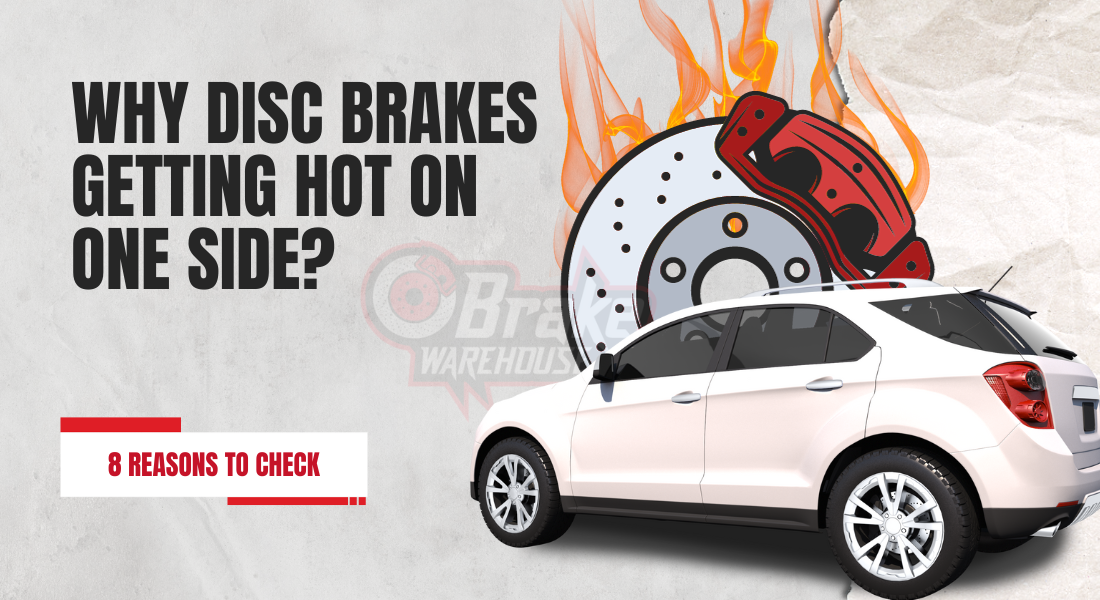
Why Disc Brakes Getting Hot on One Side?
One brake disc overheating can be due to mechanical problems within the wheel assembly, with a potential primary culprit being issues related to the calipers.
Factors that can contribute to one brake disc becoming hotter than the other include:
Collapsed Brake Hose
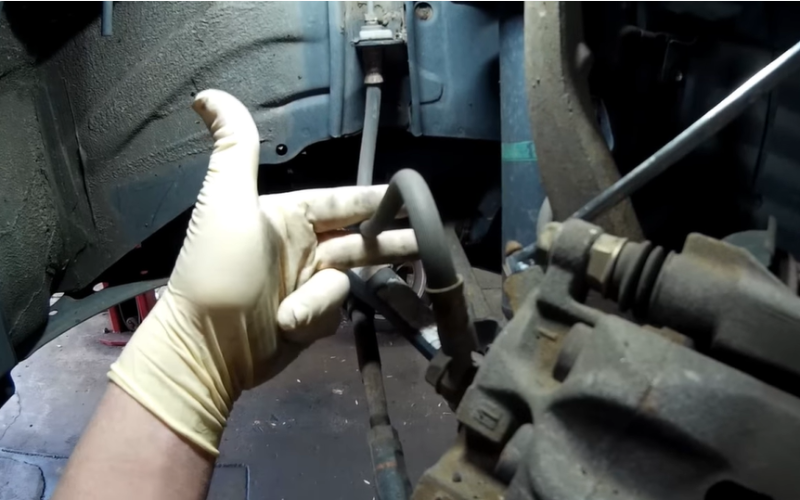
The entire braking system, particularly hydraulic brakes, relies on brake fluid. A brake hose is crucial in transporting this fluid from the vehicle’s brake pipes to the brake caliper. If the hose collapses or sustains damage, it can impede lubricant flow to the brake system.
As a result, the brake pads may not properly fit within the caliper. It can potentially lead to uneven heat distribution and overheating of the brakes.
Faulty Wheel Bearing
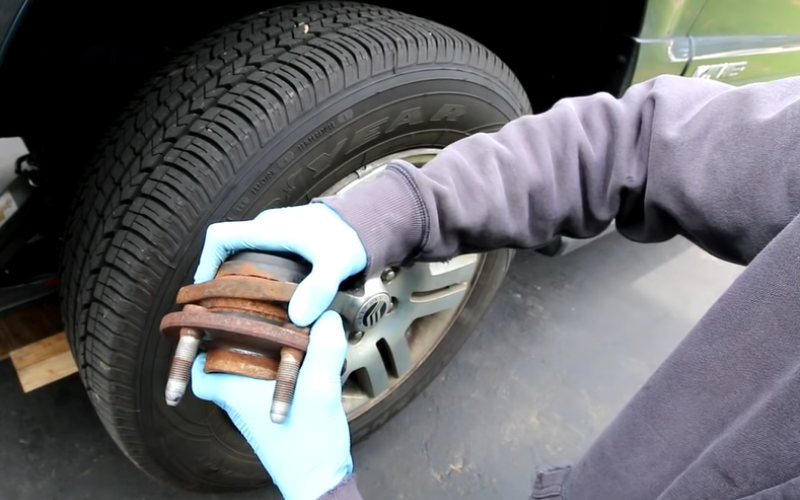
The wheel bearing is a vital component of the wheel assembly, connecting the wheel to the axle. When a wheel bearing fails, it can have 2 adverse outcomes: seizing the wheel in motion or causing the wheel to detach from the vehicle.
A malfunctioning wheel bearing can put excessive strain on the caliper during braking, generating heat.
Damaged Brake Pads

Another significant cause of uneven brake disc heating can be damaged brake pads. Improperly installed or slipping brake pads can create friction where it shouldn’t, even when the brakes are not engaged.
Read Also: Can Brake Pads Worn Out in 3 Months? (Extend Lifespan)
Warped Brake Disc
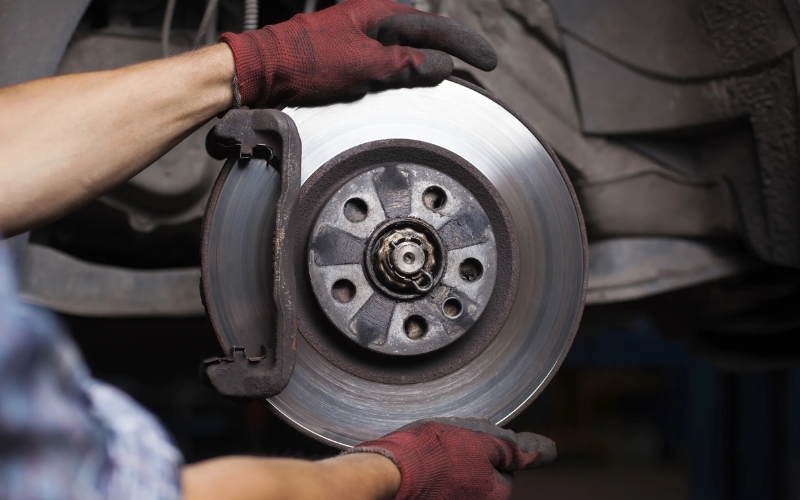
An additional factor contributing to uneven brake disc heating is a deformed or warped brake disc. Such an issue is also responsible for lug nuts becoming hot after driving.
This occurs when the flat outer surface of the disc becomes uneven due to continuous glazing or contact with the brake rotor. Such deformation can generate excessive heat on one side of the disc.
Use of Expired Brake Discs and Pads

It’s important to note that brake pads and brake discs have a limited service life. They are not vehicle components that can be used indefinitely; they require replacement.
Brake pads, for example, experience wear as soon as installed because they constantly contact the disc’s surface. Over time, they wear out completely and need to be replaced. Using expired brake components can contribute to uneven brake performance and heat buildup.
If you don’t replace the brake pad once it has worn down completely, a metal plate will come into contact with the disc. It results in substantial friction and excessive heat.
Faulty Flex Line

When the flex line malfunctions, it hinders the efficient release of brake fluid, resulting in increased friction within the braking system. This added friction places excessive pressure on the rotor, overheating the front disc.
Improper Proportioning of Valves
Incorrectly positioned valves, either to each other or within the braking system, leading to excessive force on the rotors. It contributes to front disc overheating.
Warped Rotor

A damaged rotor significantly compromises the braking system’s effectiveness. Regular checks of the rotor’s condition can help prevent more substantial issues.
Replacing clips and damaged hoses may provide a temporary solution in cases of a deteriorated rotor. However, it is advisable to replace the entire rotor to prevent future vehicle problems.
Read Also: What Causes Grooves in Brake Rotors – How To Prevent It?
How to Prevent Brake Disc Overheating?
The most effective approach to thwarting brake disc overheating is to inspect your brake system’s overall health routinely. Conduct thorough assessments of brake pads, hoses, calipers, and more to confirm their optimal functionality.
Additionally, you can follow these guidelines to avert brake disc overheating:
- Exercise gradual and gentle braking, avoiding sudden or forceful stops whenever possible.
- Ensure recommended maintenance schedule for your vehicle’s brake components. Pads, rotors, and shoes need to be replaced timely.
- Maintain a safe following distance from other vehicles to reduce the need for abrupt or aggressive braking maneuvers.
- When replacing brake parts, choose Original Equipment Manufacturer (OEM) components for compatibility and reliability.
- Seek professional brake services from a reputable automotive provider to ensure proper installation and maintenance.
- It is crucial to monitor your brake fluid regularly. Locate the brake fluid reservoir beneath the vehicle’s hood, or consult your vehicle’s manual if you encounter difficulty locating it. Regularly checking and maintaining your brake fluid can contribute to your brake system’s overall health and longevity.
Is it Common for One Brake Disc to Become Hotter Than the Other?
No, this typically occurs simultaneously in both discs when the brakes heat up. There are two methods for assessing the condition of the discs.
Sometimes, you can gauge the disc’s condition simply by observing its color. Use a jack stand to lift the car and examine the disc’s color. Once you have access underneath the vehicle, inspect the rotor: a blue hue is normal, while a pink color indicates the need for rotor replacement.
For greater precision, I employ an infrared thermometer. This method provides an exact temperature reading, revealing the extent of brake overheating.
Regarding the brake pedals, if one feels noticeably firmer than the other, it’s a sign that your calipers may be sticking. I also inspect the discs for any visible gaps or faults to ensure accuracy.
FAQs
Can brakes stop working when overheating?
Yes, brakes can stop working when overheating due to a phenomenon known as brake fade. Overheating can cause brake fluid to boil, reducing its effectiveness and causing a loss of braking power. This can result in decreased stopping ability and potentially dangerous situations.
Do overheated brakes need to be replaced?
Overheated brakes do not necessarily need to be replaced immediately. They should be allowed to cool down to regain their functionality. However, if the overheating has caused significant damage, such as warping or glazing of brake components, they may require replacement to ensure safe and efficient braking performance.
Last Notes
It is crucial to understand why disc brake getting hot on one side. This knowledge equips you to address potential issues effectively. With a sound understanding of mechanics, you can troubleshoot and resolve brake-related problems on your own.
If you notice that one side of your disc brakes is becoming excessively hot, it may indicate defective brake components or an imbalance in your brake system. It is advisable to seek the expertise of an experienced mechanic promptly upon detecting any issues with your braking system.

Meet Zayan, the mechanical genius behind the highly acclaimed brakes problems and solutions website. With over a decade of hands-on experience in the automotive industry, Zayan has become a trusted authority in the realm of brake systems.
His passion for cars, coupled with his expertise in solving complex brake-related issues, has earned him a devoted following of car enthusiasts, mechanics, and everyday drivers seeking reliable guidance.
